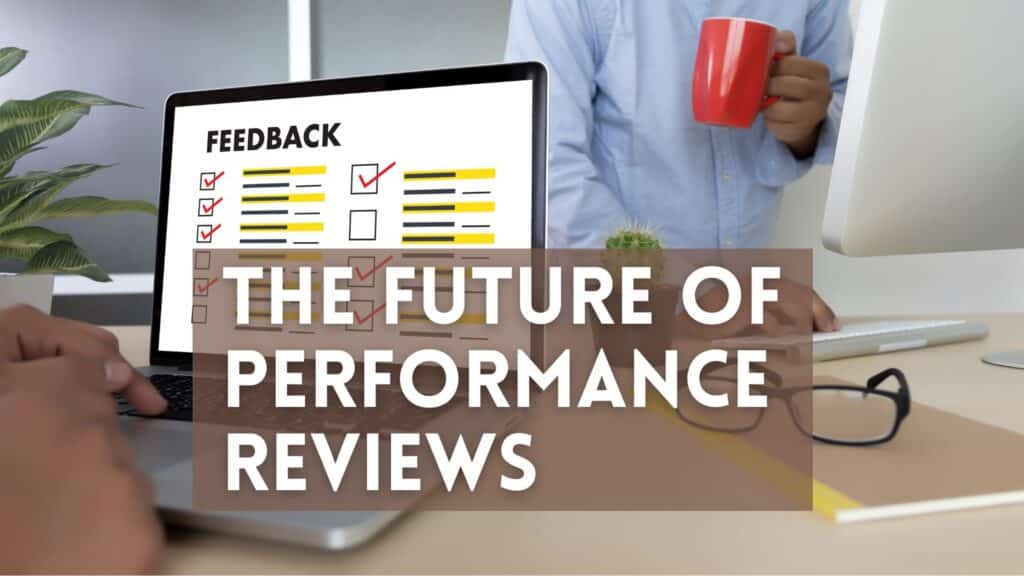
Technological innovations as well as changes in the workplace settings coupled with interest in employee wellness have transformed the field of performance reviews. More and more organizations are seeing traditional annual performance reviews as a thing of the past making way for modern day feedback procedures that are continuous and interactive. For example, a notable trend in the upcoming days of evaluations is towards the constant evaluation and continuous appraisal.
Traditional annual reviews can be criticized as backward-looking, delayed action orientation, and stifling employees’ learning. Moreover, a number of setbacks were encountered by HR practitioners as traditional reviews were utilized. Being done it on a once-a-year basis limits immediate feedback to improve personal performance and organizational productivity. Rock and Jones (2015) note that around 30 large firms are changing performance management systems away from a system of annual performance goals with forced rankings which pits employee against fellow employee in competition for higher scores to one based on connected shorter term objectives worked out via ongoing dialog between managers.
Hence, organizations are embracing flexible performance management approaches that foster dialogue between workers and supervisors throughout a given period. This provides real time information that leads to adjustments in the workflow, identification of strengths, as well as areas that require development. Society for Human Resource Management (2021) reports that 81% of companies are shifting to an annualized feedback model where employees and managers can discuss progress in real time.
Technology Integration and Data Analytics

Technology is having a significant impact on how performance review takes place. Organizations are now able to pool in integrated software solutions and data analytics for efficient gathering and analysis of performance-related data.
The usage of AI as well as machine learning to carry out employee appraisal, forecast behavior and give tailored development guidance. Using a data-driven approach for performance evaluation makes such reviews more objective while at the same time offering the organization an opportunity to identify existing patterns and trends that can be used for guidance towards making informed strategic decisions.
As per the Deloitte’s (2022) report, seventy four percent of company incorporate data analytics for purpose of performance assessment process. It implies that technology plays significant role with regard to redesigning future of performance reviews.
Employee-Centric Approaches
Performance reviews are moving toward focusing on employee perspectives rather than predetermined criteria. These factors include employee engagement, job satisfaction, and employee’s well-being which play a significant role in determining the organization’s overall performance.
Employee centered approaches include involvement of employees in performance management process setting their targets, self-assessment, regular discussions. Such an environment will promote good working relations among staff. According to Gallup’s research, organizations where employee engagement levels are high record a profitability margin of 21%, highlighting how important it is for companies to be interested in their workers’ job satisfaction (Gallup, 2020).
Skills-Based Assessments and Development

Skills-based assessment and development is now emphasized in performance reviews as the nature of work changes. Organizations are moving away from measuring employee performance using achievement results alone and are instead looking at what an employee brings to the table (their skills) and what they can do in the future.
The process goes hand-in-hand with a changing environment in contemporary organizations that entails reshaping and lifelong learning. In a publication, titled The impact of focusing on skills development in performance reviews, Jones et al. (2019) concluded that such an approach is linked to more employee satisfaction & performance.
In a nutshell, the future of performance reviews is geared towards continuous improvement with the adoption of technology and centered on employee satisfaction. The dynamic landscape of human resources posed a challenge to organizations to deliberately adapt and proactively address performance management concerns. Big data and key metrics are crucial elements in employee assessment and meeting their ever-changing needs. A prompt feedback mechanism is pivotal in continuous improvement of the organization as a whole.
References:
Society for Human Resource Management (SHRM). (2021). The Evolution of Performance Management.
Deloitte. (2022). Global Human Capital Trends 2022.
Gallup. (2020). State of the Global Workplace.Jones, R., McArdle, S., & Singleton, A. (2019). Developing Talent for Organizational Performance: A Study of the Relationship between Skill-Based Assessment and Employee Performance. Journal of Applied Psychology

